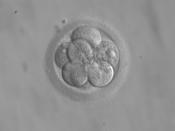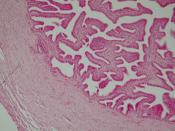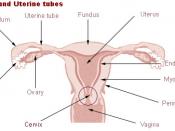Technologies and The Family
-Genetic Engineering-
Human reproduction has been known to be a relatively inefficient process. As stated on the website, www.ivf-infertility.com, the average fertile couple holds an 80% probability of fertilization for any particular exposure of egg to sperm. However, by the time of the first menstrual period after ovulation approximately half of the early embryos have failed to develop. Therefore, the probability of a live birth after exposure in a fertile couple is less than 30%. As technology advances at a dramatic rate, the challenge of new research topics becomes an appealing endeavour for most scientists. Hence, the endless will to improve the efficiency of human reproduction. As scientists gradually get closer and closer to perfecting the human race through genetic engineering, they are forced to opt for the 'trial and error' method of experimentation. Societies outspoken traditional views, moral and ethical opinions as well as the value of human life, have put much strain on the progress of technology relating to human reproduction.
The controversy surrounding this issue has led to government legislation being implemented to control such technological advances as In Vitro Fertilization (IVF), Gamete Intra-Fallopian Transfer (GIFT), Cloning, and Intra-cytoplasm sperm injection (ICSI).
In natural conception, an egg is released from the ovary and united with a sperm. Fertilization occurs in the fallopian tube, which joins the uterus to an ovary. However, with In Vitro Fertilization (IVF) The eggs and sperm are collected and the union occurs in a research lab. Embryos are then transferred to the uterus to initiate pregnancy.
Any IVF program cannot guarantee success of conception and childbirth even after multiple attempts. Success depends on many factors including the patient's age, the cause of infertility, and the talent and experience of the IVF team. This program holds many advantages to patients...



Genetic Engineering
You've written a good essay on genetic engineering which is certainly a controversial topic. Yours was an informative discussion of how the different types of genetic engineering can assist with human reproduction. This is a field which holds great promise while harboring the potential for abuse. Your report was well expressed and thought out. Commendable!
8 out of 8 people found this comment useful.